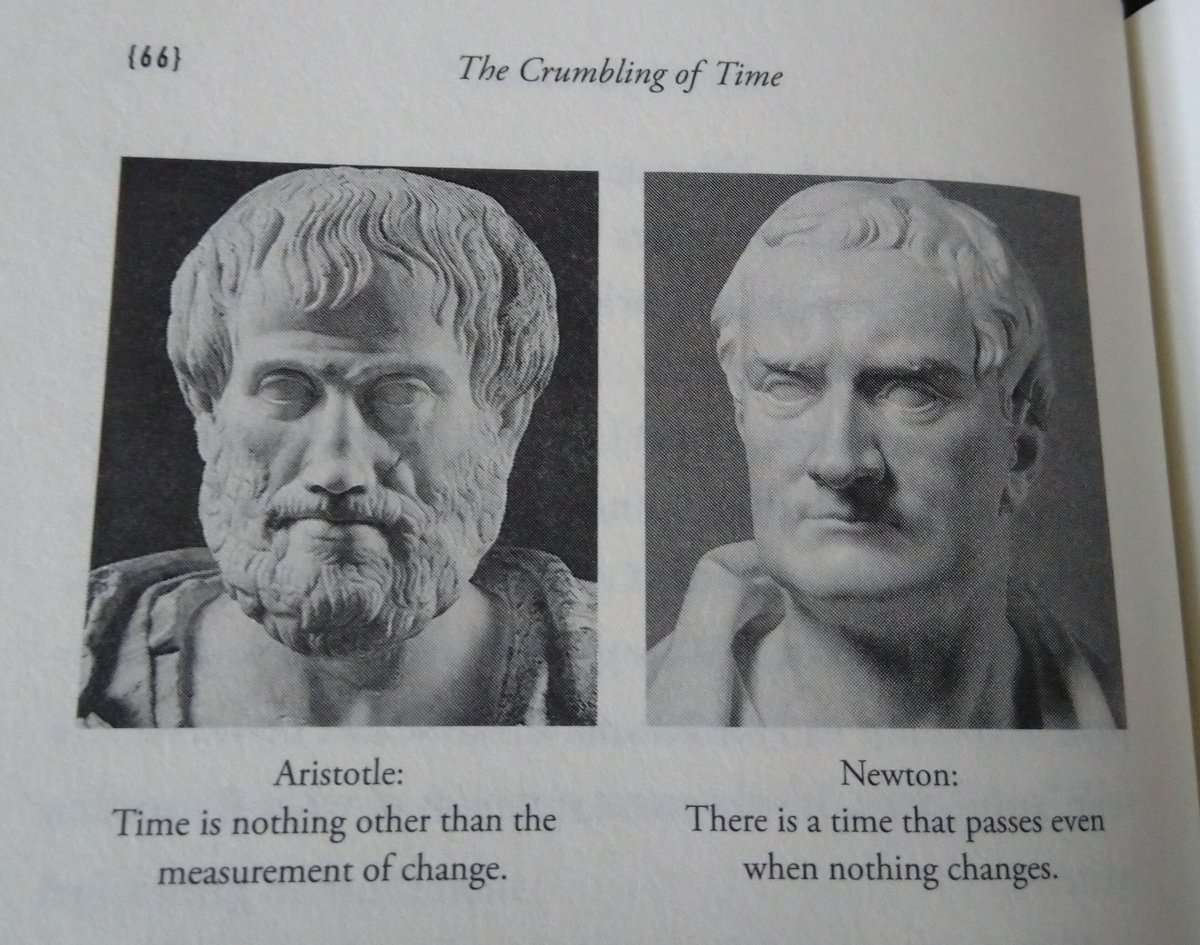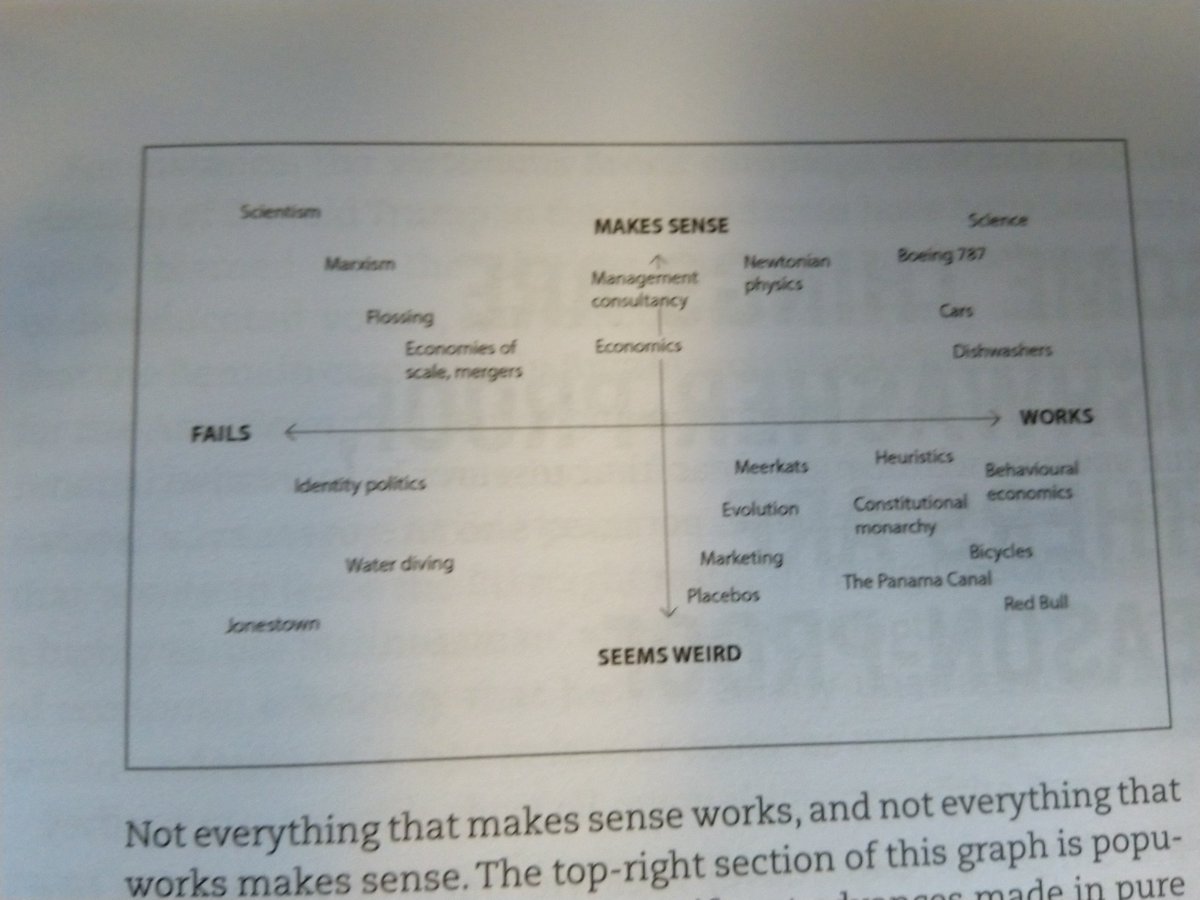Part II: The world without time
Part III: "In a world without time, there must still be some thing that gives rise to the time that we are accustomed to"; what are the constituent parts of the time that is familiar to us?
Time passes more slowly in some places, more rapidly in others.
If things fall, it is due to this slowing down of time.
Things fall downward because, down there, time is slowed by the Earth.
Times are legion: a different one for every point in space.
There is not one single time; there is a vast multitude of them.
the difference between the past and the future refers only to our own blurred vision of the world.
"Proper time” depends not only on where you are and your degree of proximity to masses; it depends also on the speed at which you move.
a minimum interval of time exists.
Below this, the notion of time does not exist—even in is most basic meaning,
The World Is Made of (a network of) Events, Not Things
The difference between things and events is that things persist in time; events have a limited duration.
The shapes of atoms will be eventually understood only with solutions to Schrödinger's equations describing how the electrons in atoms move. Events again, not things.
This way of thinking no longer works, however, if the "present" is not defined globally,
the fact that "past" and "future" do not have a universal meaning. Instead, they have a meaning that changes be tween here and there. That's all there is to it.
Many things that we see in the world can be understood only if we take into account the role played by point of view.
The entire history of the universe consists of this halting and leaping cosmic growth of entropy. It is neither rapid nor uniform.
to make calculations about possible futures is what we call "deciding."
Slowing down of time according to altitude & speed
Nonexistence of the present
Relation btwn time & gravitational field
Relations btwn different times are dynamic
Elementary equations do not recognize direction of time
Relation between entropy and blurring


































